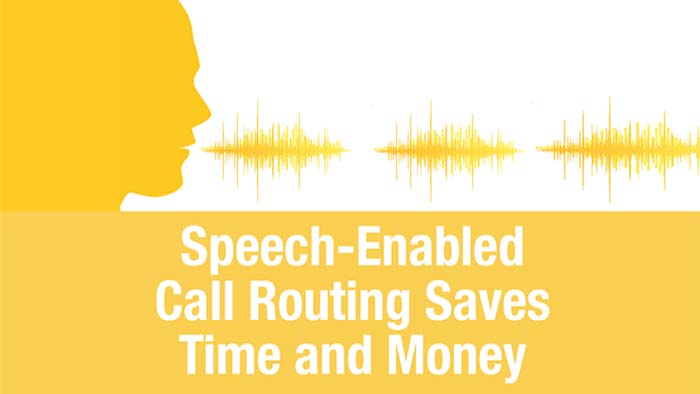We’ve all been there — listening to elevator music on hold while we’re trying to make a doctor’s appointment or get help… Sometimes we get irritated and hit zero or shout “operator!!” until we connect. Sometimes we get so frustrated that we just hang up!
Luckily, speech-enabled call routing in healthcare quickly connects patients who know what they want to the person or department they request. Effective call navigation ensures good patient experience and better optimization of live operator and agent effort.
- Operators aren’t overwhelmed by large call volumes and are more available for people who need complex or emotional support when routine callers easily self-serve.
- Patients feel less stress and frustration when they don’t have to wait on hold.
- Need to schedule change, or cancel an appointment? No more elevator music! Do it quickly.
- Need medical records? No waiting on hold! Get to that department fast.
- Need to talk to someone about your upcoming surgery? No more getting transferred! Speak directly to the person TRAINED to answer your questions.
Rising consumerism in healthcare means health systems must pay attention to the patient experience. Patients demand the same high level of service as retail customers… and healthcare organizations are looking for innovative technologies to satisfy those needs. 75% of consumers state they want the same experience in healthcare that they get from other industries.
Positive patient experiences are so important to hospitals and clinics. Patient feedback drives HCAHPS scores and those are consistently measured to inform healthcare consumers about the relative standard of care at each facility. Health systems aim to score positive reviews; negative reviews bring dissatisfied consumers and a direct financial impact. 94% of people say that an online review has convinced them to choose another service provider.
- 22% of potential new patients are lost from a single negative online review.
- People are 21% more likely to leave a review after a negative experience than a positive one.
Thanks to social media, we can gather information and begin to understand the process from the patient’s perspective, gaining insight as to exactly where we can improve their experience. Very few criticisms are about physicians – the most prevalent complaints have to do with patient experience at the reception desk, the billing department, and especially on the phone.
To further quantify the role that phone experience plays in overall patient experience, the following statistics tell the story:
Vanguard Communications, a leading healthcare marketing and research organization, has found that 53% of online healthcare complaints were about poor communications, particularly phone communications.
People want great service, it’s that simple. Speech-enabled call-routing, when tuned and managed properly, will provide just that. Parlance transforms old-fashioned IVRs and automated attendants into easy-to-navigate speech-driven tools. Over a thousand health systems, higher education institutions, and enterprises rely on Parlance every day to modernize call navigation, minimize caller effort, and reduce operational costs. Health systems specifically subscribe to Parlance to enable their patients to speak naturally and connect directly when they call on the phone, accessing care without the friction and frustration that typical automated solutions present. No long hold times, no confusing menus, no numbers to press.
By Annmarie Block


